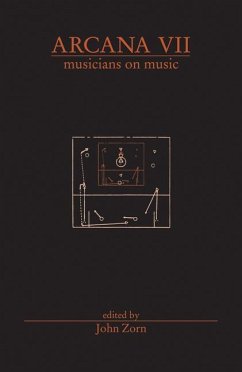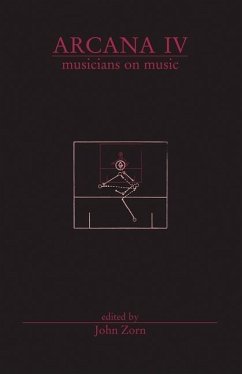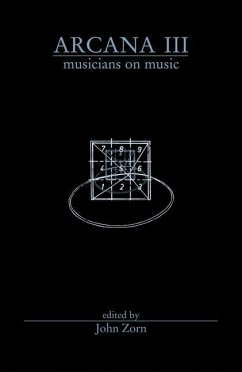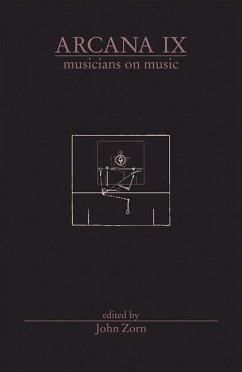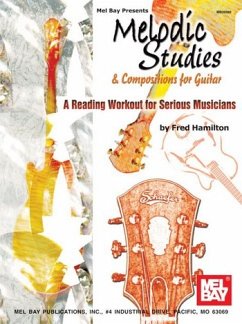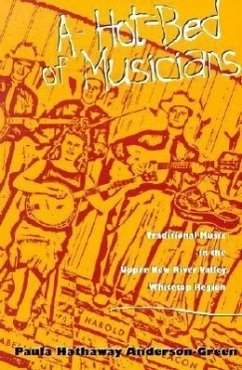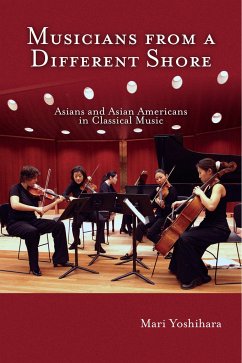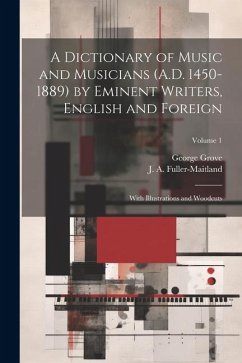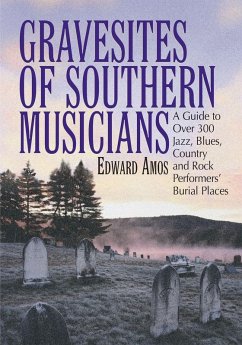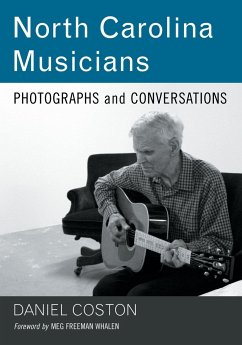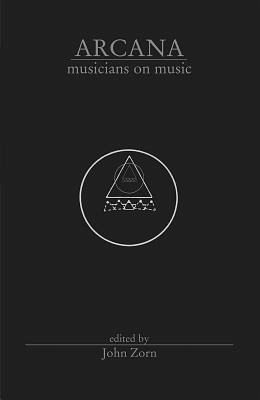
Arcana Musicians on Music
Versandkostenfrei!
Versandfertig in über 4 Wochen
26,99 €
inkl. MwSt.

PAYBACK Punkte
13 °P sammeln!
Cultural Writing. Music. Through manifestos, scores, interviews, notes and critical papers, contributors to this in-depth anthology address composing, playing, improvising, teaching, and thinking in and through music. Rather than attempting to distill or define musician's work, ARCANA illuminates it with personal vision and experience. "A remarkable book. Challenging and original. ARCANA is a vibrant testimony to the continuing vitality of new music. These exciting young composers are as idiosyncratic and eloquent with words as they are with music" -- Meredith Monk, composer/singer.
Answering a need for critical attention towards experimental and avant-garde music, Arcana is a ground-breaking work--as far-ranging and dynamic as the current generation of musicians. Through manifestoes, scores, interviews, notes and critical papers, performer/composers address composing, playing, improvising, teaching and thinking in and through music, Rather than an attempt to distill or define musicans' work, Arcana is a remarkable book--challenging and original--essential for composers, musicians, theorists and fans alike. Edited by John Zorn, it includes contributions from Bill Frisell, Marc Ribot (on earplugs), Ikue Mori (on drum machines), Bob Ostertag (on a string quartet) There's a discussion on plunderphonics with John Oswald, an overview from Elliott Sharp on his group Carbon, and David Mahler expounds his responses to a set of nine questions posed by Pauline Oliveros. The writings range from brief 2 or 3 page entries (Mike Patton's "How We Eat Our Young," Marilyn Crispell's "Elements of Improvisation") to long and elaborate essays (Scott Johnson's "Counterpoint," David Rosenboom's "Propositional Music"). Some of the contributions are more unusual, such as Zorn's "Treatment for a Film in Fifteen Scenes," Fred Frith's notebook extracts, or Peter Garland's journal of his trip to Australia's Northern Territory. All of them provide for inspiring and thought-provoking reading, making this an invaluable book for both fans of these artists and aspiring musicians of the avant garde. An appendix of brief bios for each artist ends the book, along with short lists of recommended listenings.



